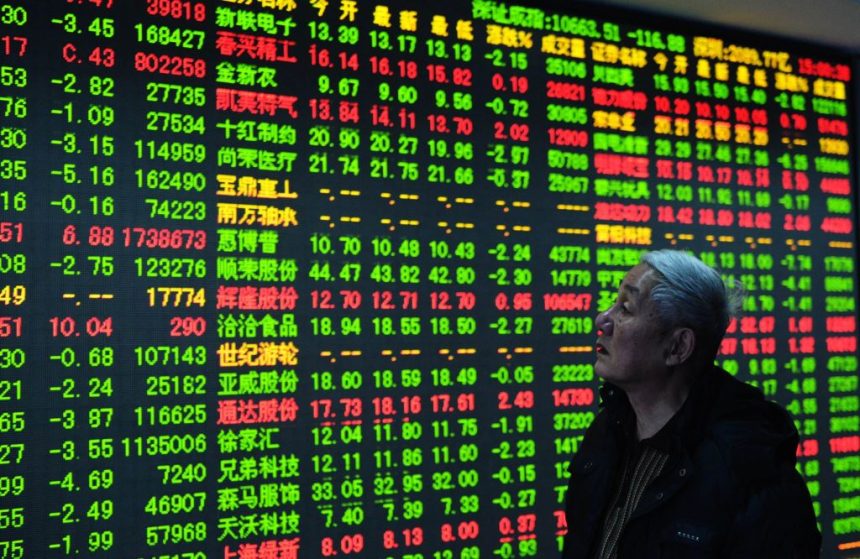Asian stock markets are headed for weekly losses rates worry. Shanghai Composite and Shanghai Shenzhen CSI 300 indexes in China declined by 0.7percent and 0.6%, respectively. As statistics revealed that producer inflation continued to decline in January while consumer inflation increased less than anticipated.
The poor readings showed that, despite the majority of anti-COVID measures being lifted earlier this year, the country’s economic recovery was taking longer than anticipated. Since China is a significant trading gateway, its weakening has spread to the rest of the region.
Asian stocks led by the two Chinese indices were expected to decline this week
The Hang Seng index in Hong Kong fell 1.8% and was trading over 2% lower for the week. Semiconductor Manufacturing International Corp (HK:0981), a manufacturer of semiconductors, was one among the worst performers on the index on Friday.
Falling about 4% after announcing dismal sales in 2023 as a result of an impending slowdown in the chip sector. Other significant technology stocks were severely damaged by the warning.
Asian stocks worried over US fed bias
Broader concerns about a possible U.S. recession this year increased in response to a surge in short-term Treasury yields, Asian markets declined. A deepening yield curve inversion, a typical recessional warning sign, also shook confidence in risk-taking markets.
Overnight Wall Street in View
Wall Street indices, that fell over-night on a combination of bad earnings and recession concerns, also delivered a dismal lead-in for Asian stocks.
Following a series of hardline indications from the Federal Reserve week, markets were likewise divided over the direction of U.S. monetary policy.
However, news on higher-than-anticipated weekly unemployment claims raised some concerns that the U.S. jobs economy was slowing down after exhibiting unexpected resilience in January.
For additional hints about the largest economy in the world, attention now shifts to U.S. consumer inflation figures expected next week.
Japan’s Nikkei slightly higher
On Friday, the Nikkei 225 index of Japan increased marginally after statistics revealed that producer inflation decreased somewhat more than anticipated in January.
Inflation, meanwhile, continued to hover around 40-year tops, with high consumer inflation fueling worries about the Bank of Japan’s hardening of monetary and fiscal policy.
European stocks begin the day with a decline.
Eurostoxx Germany -0.5% DAX -0.5%
France UK FTSE -0.4%; CAC 40 -0.3%
Spain IBEX -0.8%
For European indexes, this is merely a blip on the radar as they have maintained a strong start to the year. Even though Thursday’s price action wasn’t very encouraging,
The DAX nonetheless closed at its best levels in almost a year. That says a lot about how regional indices have been doing up to this point.
Crude oil potential for further recovery
According to CME Group’s advanced prints for the crude oil futures markets, open interest decreased by about 2.5K contracts on Thursday, reverting the prior daily rise during the same period. Following suit, volume decreased for the second straight session, this time by about 62.6K contracts.









